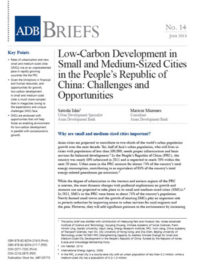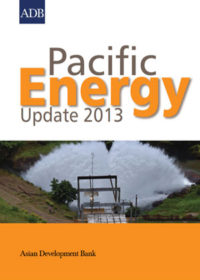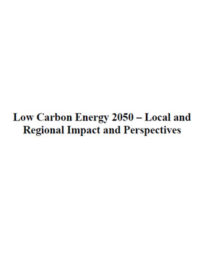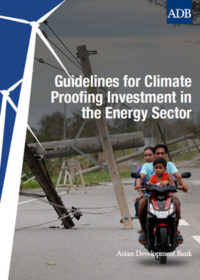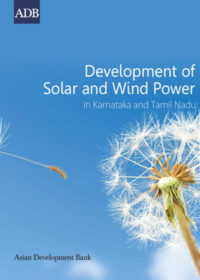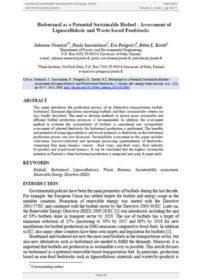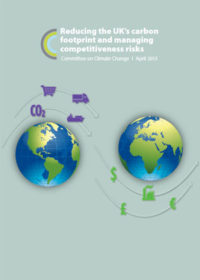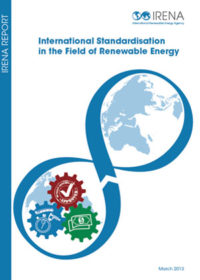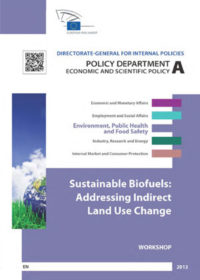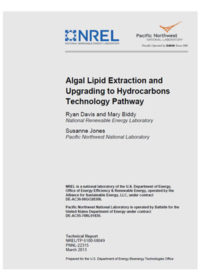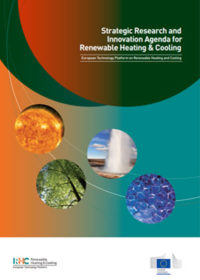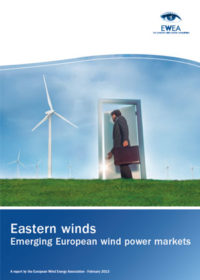Resources
Publications
Our publications, reports and research library hosts over 500 specialist reports and research papers on all topics associated with CCS.
View our Publication Library Disclaimer.
Filter by
Low-carbon development in small and medium-sized cities in the People’s Republic of China: challenges and opportunities
1st June 2013
Topic(s): Economics, Renewables
This Asian Development Bank Brief explains that Asian cities are growing, facing complex financial and human resources limitations, and could subsequently couple low-carbon development with socioeconomic growth.
Disclaimer
The content within the Global CCS Institute Publications, Reports and Research Library is provided for information purposes only. We make every effort and take reasonable care to keep the content of this section up-to-date and error-free. However, we make no claim as to its accuracy, currency or reliability.
Content and material featured within this section of our website includes reports and research published by third parties. The content and material may include opinions and recommendations of third parties that do not reflect those held by the Global CCS Institute.
The report describes the Asian Development Bank’s (ADB) work on their 2013 portfolio of Pacific energy projects, and summarises proposed assistance for 2014.
The ADB works to assist in the development of the energy sector in 14 Pacific developing member countries through technical assistance, loan, and grant financing. ADB provides support for the rehabilitation and expansion of power sector infrastructure, improvement of electricity access rates, expansion of renewable energy generation, and improvement of end-use efficiency.
Disclaimer
The content within the Global CCS Institute Publications, Reports and Research Library is provided for information purposes only. We make every effort and take reasonable care to keep the content of this section up-to-date and error-free. However, we make no claim as to its accuracy, currency or reliability.
Content and material featured within this section of our website includes reports and research published by third parties. The content and material may include opinions and recommendations of third parties that do not reflect those held by the Global CCS Institute.
Low carbon energy 2050: local and regional impact and perspectives
21st May 2013
Topic(s): Energy efficiency, Renewables
The scope of this report is to identify a set of framework conditions facilitating the European Union’s transition to low carbon economy (LCE) by local and regional authorities (LRAs). The identification process is supported by the evidence provided through the detailed description and analysis of four successful experiences, two at the local and two at the regional level.
Disclaimer
The content within the Global CCS Institute Publications, Reports and Research Library is provided for information purposes only. We make every effort and take reasonable care to keep the content of this section up-to-date and error-free. However, we make no claim as to its accuracy, currency or reliability.
Content and material featured within this section of our website includes reports and research published by third parties. The content and material may include opinions and recommendations of third parties that do not reflect those held by the Global CCS Institute.
This Asian Development Bank publication acts as a step-by-step guide for project teams wishing to incorporate climate change adaptation measures into energy investment projects.
Disclaimer
The content within the Global CCS Institute Publications, Reports and Research Library is provided for information purposes only. We make every effort and take reasonable care to keep the content of this section up-to-date and error-free. However, we make no claim as to its accuracy, currency or reliability.
Content and material featured within this section of our website includes reports and research published by third parties. The content and material may include opinions and recommendations of third parties that do not reflect those held by the Global CCS Institute.
Development of solar and wind power in Karnataka and Tamil Nadu
24th April 2013
Topic(s): Policy law and regulation, Renewables, Solar energy, Wind energy
This publication analyses the performance of India's Karnataka and Tamil Nadu in their efforts towards installing solar and wind energy. It attempts to distil the reasons for their success, albeit using two very different renewable energy programs. It also covers the major initiatives taken by the country in the form of policy and regulations including the formation of a full-fledged Ministry of New and Renewable Energy, the Electricity Act, 2003, the National Electricity Policy, 2005, the National Tariff Policy, 2006, Rajiv Gandhi Grameen Vidyutikaran Yojana, 2005, and Jawaharlal Nehru National Solar Mission (JNNSM).
Disclaimer
The content within the Global CCS Institute Publications, Reports and Research Library is provided for information purposes only. We make every effort and take reasonable care to keep the content of this section up-to-date and error-free. However, we make no claim as to its accuracy, currency or reliability.
Content and material featured within this section of our website includes reports and research published by third parties. The content and material may include opinions and recommendations of third parties that do not reflect those held by the Global CCS Institute.
Biobutanol as a potential sustainable biofuel – assessment of lignocellulosic and waste-based feedstocks
15th April 2013
Topic(s): Biofuels / Bioenergy, Renewables
This paper, from Journal of Sustainable Development of Energy, Water and Environment Systems, introduces the production process of an alternative transportation biofuel, biobutanol.
European legislation concerning biofuels and their sustainability criteria are also briefly described. The need to develop methods to ensure more sustainable and efficient biofuel production processes is recommended. In addition, the assessment method to evaluate the sustainability of biofuels is considered and sustainability assessment of selected feedstocks for biobutanol production is performed. The benefits and potential of using lignocellulosic and waste materials as feedstocks in the biobutanol production process are also discussed. Sustainability assessment in this paper includes cultivation, harvest/collection and upstream processing (pretreatment) of feedstocks, comparing four main biomass sources: food crops, non-food crops, food industry by-product and wood-based biomass. It can be concluded that the highest sustainable potential in Finland is when biobutanol production is integrated into pulp & paper mills.
Disclaimer
The content within the Global CCS Institute Publications, Reports and Research Library is provided for information purposes only. We make every effort and take reasonable care to keep the content of this section up-to-date and error-free. However, we make no claim as to its accuracy, currency or reliability.
Content and material featured within this section of our website includes reports and research published by third parties. The content and material may include opinions and recommendations of third parties that do not reflect those held by the Global CCS Institute.
Reducing the UK’s carbon footprint and managing competitiveness risks
1st April 2013
Topic(s): Policy law and regulation, Renewables
This report responds to a request by the Government to look at the role of consumption based emissions. It covers past trends and set out future scenarios for UK consumption emissions. It also considers lifecycle emissions of low-carbon technologies in order to understand how their deployment would impact the UK’s carbon footprint.
In providing this advice, this report address the related issue as to whether offshoring of industry in response to low-carbon policies has been or could be a significant contributory factor to reductions in production emissions. This would not have any benefits for the UK’s carbon footprint and therefore global emission reductions, and would not be desirable from a wider economic perspective.
It is important that these competitiveness risks are assessed and managed when designing approaches to reduce emissions. This is clear in the Climate Change Act, which requires us to consider international circumstances and competitiveness impacts when advising on carbon budgets.
Disclaimer
The content within the Global CCS Institute Publications, Reports and Research Library is provided for information purposes only. We make every effort and take reasonable care to keep the content of this section up-to-date and error-free. However, we make no claim as to its accuracy, currency or reliability.
Content and material featured within this section of our website includes reports and research published by third parties. The content and material may include opinions and recommendations of third parties that do not reflect those held by the Global CCS Institute.
International standardisation in the field of renewable energy
1st March 2013
Topic(s): Engineering and project delivery, Health safety and environment, Renewables
The key message from this report is that it is crucial to ensure a strategic pathway in standardisation for renewable energy technologies, taking into account the requirements and priorities of all involved stakeholders.
Disclaimer
The content within the Global CCS Institute Publications, Reports and Research Library is provided for information purposes only. We make every effort and take reasonable care to keep the content of this section up-to-date and error-free. However, we make no claim as to its accuracy, currency or reliability.
Content and material featured within this section of our website includes reports and research published by third parties. The content and material may include opinions and recommendations of third parties that do not reflect those held by the Global CCS Institute.
Sustainable biofuels: addressing indirect land use change
1st March 2013
Topic(s): Biofuels / Bioenergy, Domestic policy, Policy law and regulation, Renewables
This report outlines the outcomes of a European Parliament workshop held in Brussels on 20 February 2013, hosted by Directorate-General for Internal Policies. The workshop consisted of an exchange of views with representatives of EU institutions, research institutes, biofuels industry, NGOs and other stakeholders. The first part presented the European Commission's proposal and provided scientific input on the assessment of the impacts of indirect land-use change (ILUC). The second part introduced policy options and future perspectives from the point of view of industry and NGOs.
Disclaimer
The content within the Global CCS Institute Publications, Reports and Research Library is provided for information purposes only. We make every effort and take reasonable care to keep the content of this section up-to-date and error-free. However, we make no claim as to its accuracy, currency or reliability.
Content and material featured within this section of our website includes reports and research published by third parties. The content and material may include opinions and recommendations of third parties that do not reflect those held by the Global CCS Institute.
Algal lipid extraction and upgrading to hydrocarbons technology pathway
1st March 2013
Topic(s): Biofuels / Bioenergy, Renewables
The United State’s National Renewable Energy Laboratory (NREL) and the Pacific Northwest National Laboratory (PNNL) are undertaking studies of biomass conversion technologies to identify barriers and target research toward reducing conversion costs.
This technology pathway case investigates the cultivation of algal biomass followed by further lipid extraction and upgrading to hydrocarbon biofuels. Technical barriers and key research needs have been assessed in order for the algal lipid extraction and upgrading pathway to be competitive with petroleum-derived gasoline-, diesel-, and jet-range hydrocarbon blendstocks.
Disclaimer
The content within the Global CCS Institute Publications, Reports and Research Library is provided for information purposes only. We make every effort and take reasonable care to keep the content of this section up-to-date and error-free. However, we make no claim as to its accuracy, currency or reliability.
Content and material featured within this section of our website includes reports and research published by third parties. The content and material may include opinions and recommendations of third parties that do not reflect those held by the Global CCS Institute.
Strategic research and innovation agenda for renewable heating & cooling
1st March 2013
Topic(s): Biofuels / Bioenergy, Geothermal energy, Renewables, Solar energy
The European Technology Platform on Renewable Heating and Cooling produced this document to address the short, medium and longer term research and development needs in the field of renewable heating and cooling technologies. The authors identify research priorities for biomass, geothermal, solar thermal and cross cutting technologies. This document sets out the likely directions of technological and organisational changes that will need to be converted into specific research activities over the next years. Furthermore, it aims to facilitate the coordination of other research programmes in and between member states.
Disclaimer
The content within the Global CCS Institute Publications, Reports and Research Library is provided for information purposes only. We make every effort and take reasonable care to keep the content of this section up-to-date and error-free. However, we make no claim as to its accuracy, currency or reliability.
Content and material featured within this section of our website includes reports and research published by third parties. The content and material may include opinions and recommendations of third parties that do not reflect those held by the Global CCS Institute.
Eastern winds: emerging European wind power markets
1st February 2013
Topic(s): Renewables, Wind energy
Central, eastern and south-eastern Europe is Europe’s new wind energy frontier. Signicant growth, opportunity and benets can be expected from and for the region in the years ahead.
These newly emerged and emerging markets are not only important in their own right, but they have increased perceived importance given the state of wind energy markets elsewhere in Europe. These new markets look set to offset, to a greater or lesser extent, declines in the near future in some of the more mature southern European markets. It therefore becomes all the more important for the European wind energy industry that the newly emerged and emerging eastern European markets are able to achieve their full potential.
Disclaimer
The content within the Global CCS Institute Publications, Reports and Research Library is provided for information purposes only. We make every effort and take reasonable care to keep the content of this section up-to-date and error-free. However, we make no claim as to its accuracy, currency or reliability.
Content and material featured within this section of our website includes reports and research published by third parties. The content and material may include opinions and recommendations of third parties that do not reflect those held by the Global CCS Institute.
